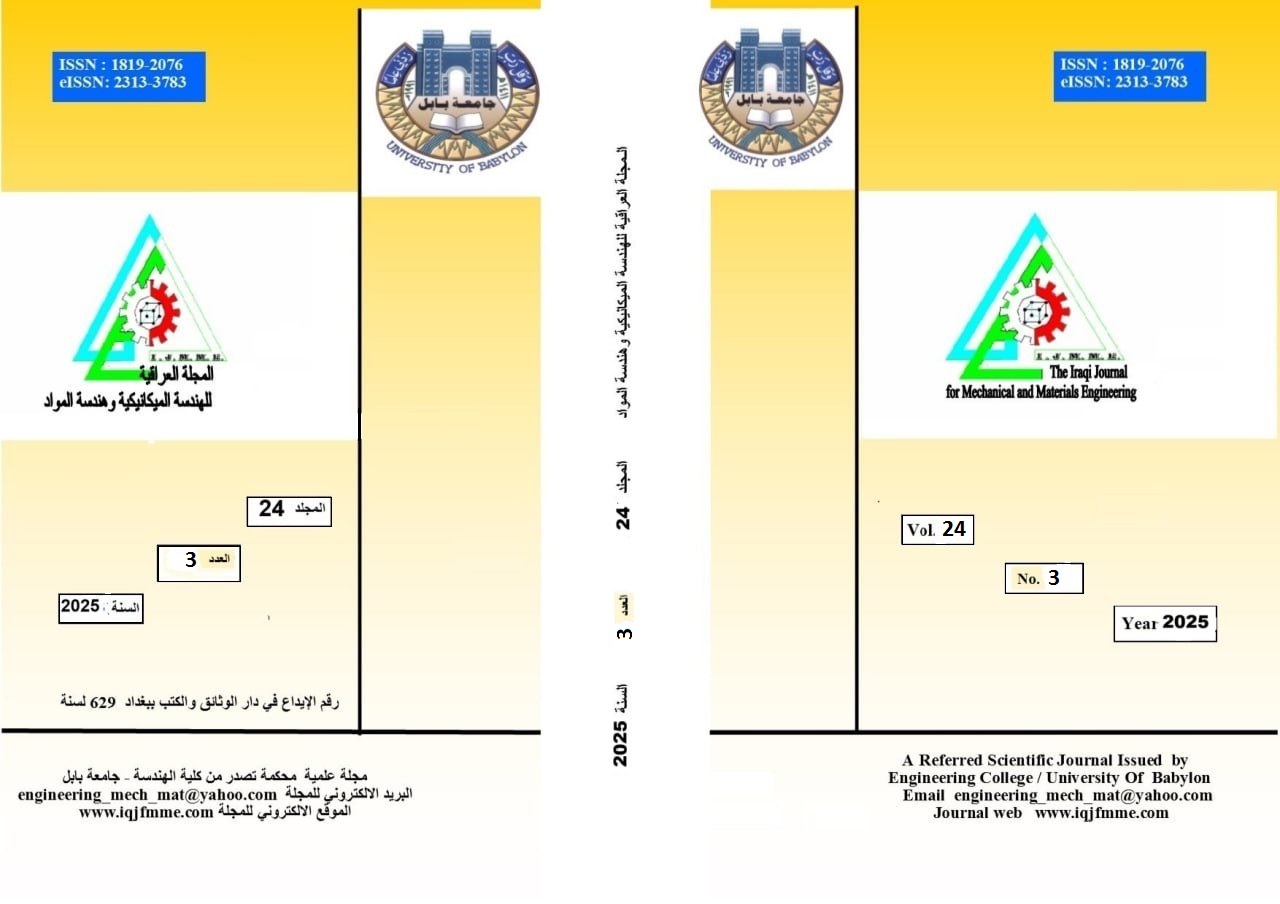INVESTIGATION OF THERMO-MECHANICAL PERFORMANCE OF NANOCELLULOSE/PVA COMPOSITE FILMS FOR ENHANCED HEALING OF SECOND-DEGREE BURN WOUNDS
THE IRAQI JOURNAL FOR MECHANICAL AND MATERIALS ENGINEERING
DOI:
https://doi.org/10.32852/py5dv306Keywords:
Cellulose Nanocrystals (CNC), Polyvinyl Alcohol (PVA), Bio-composite Films, Wound Healing, Second-degree Burns, Thermal and Mechanical Properties, Biomedical Applications.Abstract
Several people are interested in producing bio-composite films for healing wounds since they could be biocompatible, robust, and stable at high temperatures. In this study, nanocellulose (CNC) was added to a polyvinyl alcohol (PVA) matrix to generate composite films that may be utilized to treat second-degree burns. It has been formed into films by pouring a solution into a mold and then testing them with a broad variety of thermal, mechanical, and physicochemical tests. Differential scanning calorimetry (DSC) and thermogravimetric analysis (TGA) have also been used to test the films' thermal stability and how they change phases. Tensile testing has also been utilized to assess the films' mechanical integrity. The results revealed that adding CNC made the films stronger in terms of heat resistance, tensile strength, and Young's modulus, while still letting them remain flexible. Early testing of the swelling ratio and contact angle also demonstrated that the films could store moisture and had a hydrophilic surface, both of which are critical for healing wounds. CNC/PVA bio-composite films are an excellent option for biomedical purposes because they have improved mechanical and thermal properties and good interfacial qualities. In the future, it will undertake further studies in vitro and in vivo to make sure that they work as wound dressings and potential methods to provide medications.




